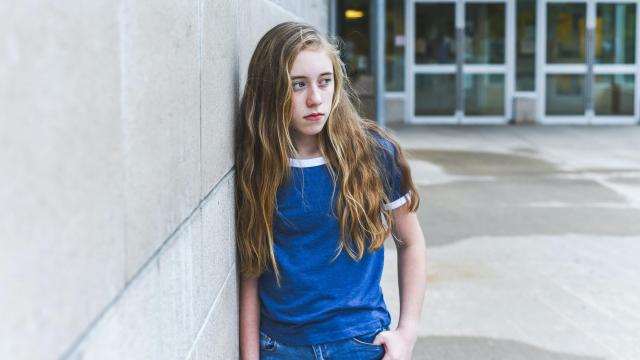Students were already going through a mental health crisis before the coronavirus turned their world upside down. But when the pandemic forced everyone to isolate themselves, it only exacerbated the problem.
“There has been a clear and sharp increase in children’s anxiety and depressive symptoms [during the pandemic], probably about as high as 30 per cent,” says Dr. Helen Egger, co-founder, chief medical officer, and chief scientific officer at Little Otter. “We’ve also seen in some emergency departments an increase of children coming in with mental health issues.”
The New York Times recently reported that teenagers believe schools should make students’ mental health a priority and offer mental health days to help them decompress and recharge. But even as awareness around anxiety and depression in adolescents increases, parents and teachers often believe that children shouldn’t stay home — they should “tough it out.”
“If this is something that 20 per cent of kids experience and we have treatments for it, we need to talk about it and identify it,” Egger says. “We know that 75 per cent of adult mental health disorders begin before the age of 14. The fact that we have stigmas about mental health, particularly in children, means that we are losing opportunities to intervene and overcome these challenges as early as possible.”
As schools slowly adopt ways to help the well-being of students, we spoke with Egger about what parents can do if their child is depressed and might need to take a mental health day — and she offers some suggestions on how kids and parents can make the most of it.
Signs that a child is struggling
With most children having started the school year, many will feel anxious for several weeks as they transition from the lazy pace of summer to a more structured routine. They’ll be meeting new friends and teachers and feeling concerned about their future, both in the short and long term.
Younger kids will likely come home incapable of holding themselves together and throw a tantrum or two. Teens will also be overwhelmed emotionally. Egger says this is common for several weeks, and children should return to their typical selves once they settle into the new routine. But if you notice a significant behavioural change, Egger recommends seeking the help of a professional. Here are some signs she says to look out for:
- They are overcome with feelings of sadness, fear, and worry.
- They complain of stomach aches, headaches, and other pains.
- They have trouble sleeping at night.
- They experience changes in appetite.
- They’re not wanting to do things they typically enjoy.
- They are isolating themselves in their bedroom.
There is also a free Mental Health Toolkit for families with children between the ages of 2 and 12 years old that parents may find helpful.
How to spend a mental health day
The concept of a mental health day can be difficult for parents and school administrations to grasp, with one district calling it an absence for “student illness and well-being” to avoid any stigma. Egger says another way to think about a child’s mental health day is to understand that mental health challenges are similar to physical ailments and should be cared for similarly.
“If your child is struggling with mental health and anxiety, that might be a reason to stay home,” she says.
Egger also believes there are two kinds of mental health days. One is where a child has a day filled with activities that help them relax and recharge. But if it’s clear that a child is going through a mental health challenge that is causing familial conflict or affecting their schoolwork, then it should be treated with therapy, not as a way to avoid problems at school.
“One to two days at home is not going to be the answer [in some cases],” Egger says. “If your child is really struggling, use that day to learn more about what they are struggling with — and use the day to take them to see a mental health provider.”
If you can spend a day or two at home with your child, Egger says to look for signs of something bigger that could be going on, such as signs of bullying or problems with a teacher.
“The important thing is being open to talking about your child’s feelings, “ she says. “There aren’t good feelings and bad feelings. They are what they are, and we want to understand how they’re feeling and won’t judge them. One of the things we do as parents is jump in and find a solution for them or reassure them, but when they are struggling, it’s important to listen and create that space so they can share what they’re feeling.”
Egger also recommends using the time for parents to check in on their own mental health.
“The impact on a child of having a depressed parent or someone being overstressed, overworked, and overwhelmed is going to have a huge impact on how they’re feeling,” she says. “Children learn more not by what we say to them but what they see us doing.”

Leave a Reply
You must be logged in to post a comment.